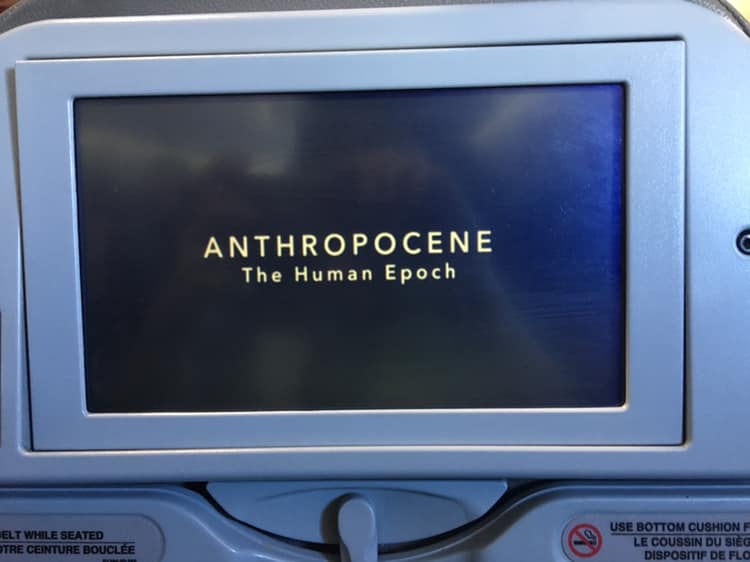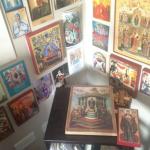
I have been at a loss for words about the deaths of so many in the last week. Earlier in the week, on Sunday, February 10, a Boeing 737 Max 8 flown by Ethiopian Airlines was the second of such planes to crash in five months. I know people who knew people among the 157 people killed: an African academic champion of young scholars and writers, environmental activists, theologians, among a number of other people. Then on Friday, February 15, a white nationalist shot up two mosques in Christchurch in New Zealand, a city that had already been devastated by an earthquake in 2011. 50 are now dead.
I have been in the thick of mourning someone who died in my own community, Fr Myron Panchuk. He died suddenly of a massive heart attack, in a half hour when he was alone in the house, coffee mug smashed on the ground. His body killed him. By contrast, those who were killed in both the plane crash and in the shooting had their lives taken from them by systems that are beginning to become more clear. The Seattle Times released a report a week after the Ethiopian Airlines crash, in which it was revealed that they had been investigating Boeing and the Federal Aviation Administration (FAA) since the Lion Air crash last November. It turns out that, in an attempt to outcompete the Airbus, Boeing had pressured the FAA to let them self-regulate, which means that they didn’t, and installed software that overrode the pilots’ agency in controlling the plane, even though the company is known for maintaining pilot agency, and didn’t even tell airlines that had bought the planes that such technology had been installed in the first place.
The massacre at Christchurch was similarly revelatory about the problems of the Internet as a system. In a masterful post, Sam Kriss reveals that the fascisms that grow online are the stuff of real life now. What happened in Christchurch is not just a New Zealand problem; the crazed manifesto on which it was based crystallized white nationalism, Chinese ‘dreams,’ and Greek Orthodox fascist ideologies into a crazed manifesto, and then the terrain of the attack took place literally everywhere, enabled by Facebook Live. And then as New Zealand’s prime minister Jacinda Ardern revealed, there was another problem: easy access on the market in New Zealand for the kind of weapon that could kill so many, not unlike the problem with guns in the United States — except that New Zealand is probably going to get around to banning them, whereas it’s still said to be impossible in America for unfathomable reasons, mostly connected with the National Rifle Association claiming Second Amendment rights.
The systems have been revealed, but what do I now say? I am not a faith leader of any sort. I am a secular academic — strictly speaking, a geographer of religion whose arena of study is trans-Pacific and whose political convictions are Asian American — who also happens to be Eastern Catholic and has a blog. Lord, have mercy sounds cheap, unless I can clarify that we like our Muslim sisters and brothers know in our bones that Allah is merciful and all-compassionate and cry out to him, with others who died as victims of systemic and structural injustice, ‘How long?’ And what if I have no words, because I do not know enough, or do not know what to say, or simply want to grieve in silence? How is silence interpreted?
I wanted to say nothing, especially because I am an academic. I heed the words of John Henry Newman in The Idea of a University where he criticizes academics who comment too much on public affairs as being more pundits than scholars. The point of scholarship, as Newman had it, was that it was slow and not given to hasty opinion. It is a body of work that is built up and accumulated as universal knowledge, then taught in a university in a way that even includes theology, an inquiry into the supernatural as part of the problem of universality. I had nothing of this sort to say, so I thought I should not say anything. Also, the worst thing in moments like this are for the experts to weigh in. Expertise and grief are like baking soda and vinegar. The only time they should be combined is in a fourth grade science fair exhibition.
I can, of course, run down the list of geographers who have had something to say about Islamophobia and geographies of exclusion. Some might include Claire Dwyer, Patricia Ehrkamp, Kristin Sziarto, Anna Manson McGinty, Anna Secor, Banu Gökariksel, Peter Hopkins, Murat Es, Rachel Pain, and so on and so forth — and I’d even venture to say that the field owes an enormous debt to studies of anti-mosque activity in Australia led by Kevin Dunn. What is scrutinized in this field are not always the everyday lives of Muslims around the world — although some of that happens too — but more importantly, the structures that prop up the politics of fear about them, which is how you know that for the better part of two decades, feminist geography has been the trend within geographies of religion. Indeed, on this note, Sylvia Chan-Malik has issued a poignant reminder on Twitter that Islamophobia is itself a ‘terrible term’ because it implies that the fear of Muslims is extremist when in fact they are structurally normative. To examine affect is in the end to critique structures, to probe how fear is manufactured and normalized, to question the problems and prospects of asserting that it can be mitigated by encounter, and so it was that as I saw Ardern put on a hijab, warmly embrace folks at the mosque, and become hailed as a true world leader just because she was present and exuded a compassion that is befitting of a feminist ethic of care, my first thought, one admittedly of transference, was: who’s the geographer in this picture?
But in a collective voice, the feminism of geographies of religion, which I saw in a moment of transference manifested in Ardern’s public display of grief, reinforces the point: we have no words. There is still nothing that even academics have to say about it. We have only bodies, and just as fear is the affect that frames certain bodies as enemies, love, care, and compassion give powerful presence to Ardern’s words, They are us. In context, they are us is a statement about Muslims migrants to New Zealand — that they too belong to the nation, whereas the attacker, as Ardern eloquently put it, was not (he was Australian). No doubt much critique will be devoted to this kind of empathetic nationalism (someone’s going to steal that phrase too, alas — and they can have it, for all I care), but on the topics of embodiment, empathy, and emotion, I wonder whether this sentiment, especially this week, exceeds the nation. It’s rhetoric from the United States that has stoked Islamophobia in Oceania. It’s a failure of American regulation that has caused plane crashes in Asia and Africa. The roots of these global problems have also exceeded the nation — that of America — and in this terrifying way, we all really are us, subjected to fear, obligated to care.
It was while musing on this reality that I saw yet another geographer, one who is tangentially connected to my church for reasons of family, who posted on social media a small sliver of hope. He said that he had seen a contrast in the last week, that amidst all of this death and destruction, there were also high school students following in the steps of the Swedish activist Greta Thunberg cutting classes and engaging in a climate action strike. There is no Planet B, their signs read, and from their public actions, we learn that they know all too well that we are us. But in this, we also discover perhaps that affect, embodied as it is, is never the final word — it is the first word. It is clear that the students are also afraid of climate change, so the affect is fear, but in processing it intellectually, the emotional action is to demand that we care for this planet. The passage from affect to emotion is the process by which words are formed, where bodies are moved into action.
As if spiritually anticipating this event, I happened to be on a plane the day before, smiling to myself ironically as I pushed play on a film titled Anthropocene: The Human Epoch. Hauntingly narrated by this generation’s newest Tomb Raider, Alicia Vikander, the ‘cinematic meditation’ the documentary promises presents the argument that anything humankind has ever made has originated from the material of the earth, which means that the technological ability to raid it is ecologically unsustainable, and so is the propensity to discard that which humanity has made into landfills of trash. It’s nothing I didn’t already know, and it’s not like the so-called ‘new materialists’ have a premium on the contemplation of waste — see Žižek’s Pervert’s Guide to Ideology, for example, for a disturbing psychoanalytic treatment of trash — but it served as a reminder of the big picture that we are all talking around. It’s like the students like Jon Snow are trying to convince the rest of Games of Thrones that the White Walkers are coming, that environmental disaster that has been anticipated since the days of the Children of the Forest is looming and that it relativizes the war for the Iron Throne.
There are no words here either, though if there were, they might hew closely to Yasmin Nair’s ‘Manifesto.’ What we have instead is an apparatus of fear that cloaks the structures of white settler nationalism with the hubris of its ecological engineering. This is the machine with which we co-exist as we try to form everyday communities of care, empathy, and compassion, which is to say that I am finally beginning to understand the impetus behind J.K. Gibson-Graham’s ‘postcapitalist’ politics. It is, at the end of the day, the same spiritual impulse behind a contemporary Orthodox Christian sense of oikoumēnē as requiring ecological justice as top priority, a theological sensibility that is opposed by Byzantine neo-imperialism that insists on establishing a particular group of people as rulers of the earth. What we learned this week is that what happens in the microcosm of Orthodoxy is an icon of what is happening throughout the world, that the stakes for ecumenism in the sense of practicing the works of diakonia to build our common home, in the words of Pope Francis, lie in exposing imperial logics as that which will kill us all in the end. We are us — this must be felt beyond words.
And so it is that I still have no words. There is nothing to say. But in the silence, there is stillness, and in the practice of hesychasm, togetherness and groundedness, the sense that even bones feel that this earth is our home and, even in our grief, we must know each other as sisters and brothers.












